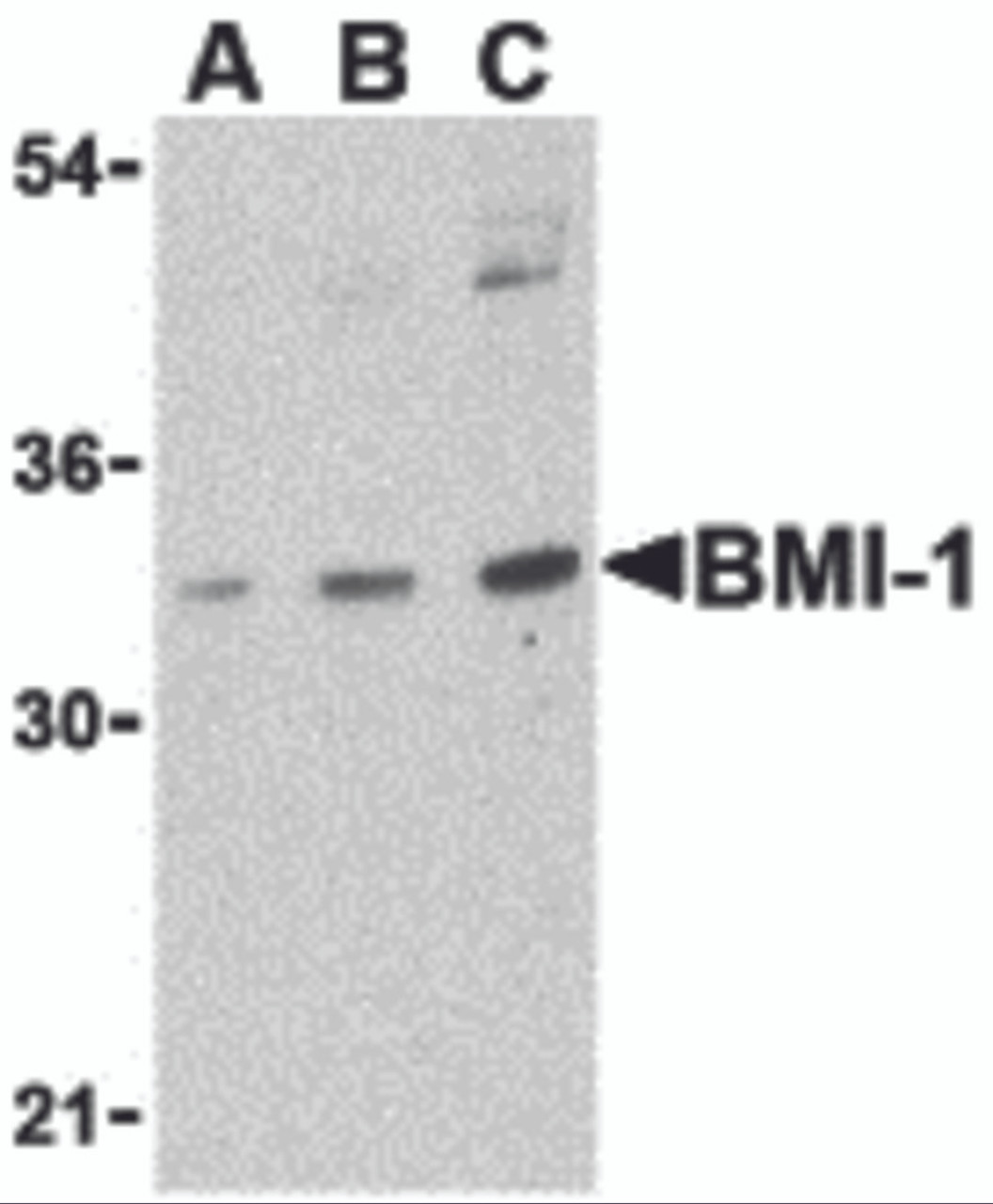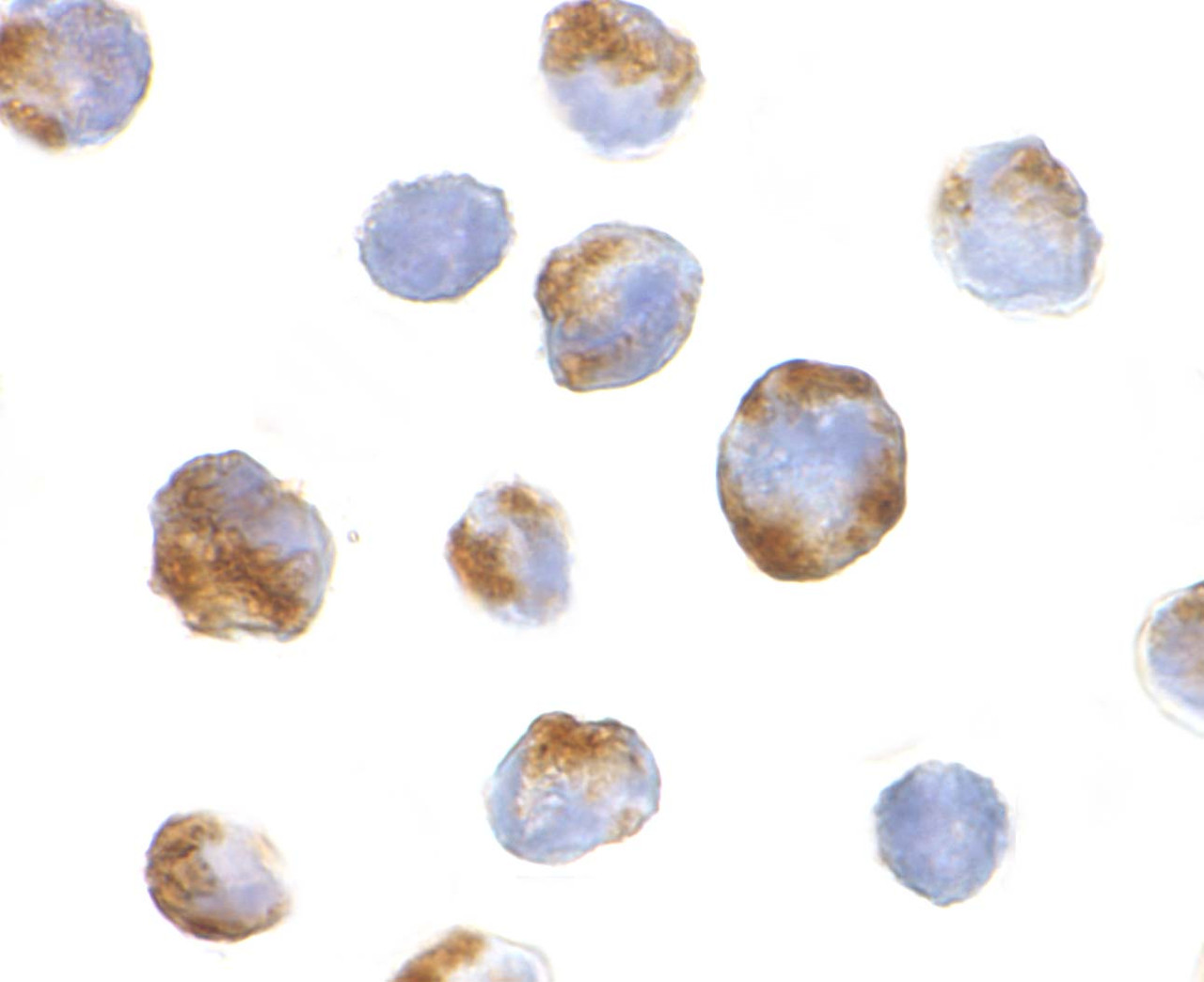Product Description
BMI-1 Antibody | 3755 | ProSci
Host: Rabbit
Reactivity: Human, Mouse, Rat
Homology: Predicted species reactivity based on immunogen sequence: Bovine: (100%) , Chicken: (100%)
Immunogen: BMI-1 antibody was raised against a peptide corresponding to 15 amino acids near the center of human BMI-1.
The immunogen is located within amino acids 140 - 190 of BMI-1.
Research Area: Signal Transduction, Neuroscience
Tested Application: E, WB, ICC, IF
Application: BMI-1 antibody can be used for detection of BMI-1 by Western blot at 0.5 to 2 μg/mL. Antibody can also be used for immunocytochemistry starting at 10 μg/mL. For immunofluorescence start at 20 μg/mL.
Antibody validated: Western Blot in human samples; Immunocytochemistry in human samples and Immunofluorescence in human samples. All other applications and species not yet tested.
Specificiy: N/A
Positive Control 1: Cat. No. 1204 - K562 Cell Lysate
Positive Control 2: Cat. No. 17-004 - K-562 Cell Slide
Positive Control 3: N/A
Positive Control 4: N/A
Positive Control 5: N/A
Positive Control 6: N/A
Molecular Weight: N/A
Validation: N/A
Isoform: N/A
Purification: BMI-1 Antibody is affinity chromatography purified via peptide column.
Clonality: Polyclonal
Clone: N/A
Isotype: IgG
Conjugate: Unconjugated
Physical State: Liquid
Buffer: BMI-1 Antibody is supplied in PBS containing 0.02% sodium azide.
Concentration: 1 mg/mL
Storage Condition: BMI-1 antibody can be stored at 4˚C for three months and -20˚C, stable for up to one year. As with all antibodies care should be taken to avoid repeated freeze thaw cycles. Antibodies should not be exposed to prolonged high temperatures.
Alternate Name: BMI-1 Antibody: PCGF4, RNF51, FLVI2/BMI1, PCGF4, Polycomb complex protein BMI-1, Polycomb group RING finger protein 4
User Note: Optimal dilutions for each application to be determined by the researcher.
BACKGROUND: BMI-1 Antibody: The transcriptional repressor BMI-1 was first identified as a proto-oncogene frequently activated by Moloney murine leukemia proviral insertions in mice and cooperating with c-myc in the generation of mouse lymphomas. BMI-1 is involved in segment specification, cell growth and maintenance, transcriptional regulation, and chromatin modification. A major target of BMI-1 is the ink4a locus which encodes tumor suppressor proteins p16 and p19Arf, which are important in tumor progression and thought to be critical in cell proliferation and senescence. Recent studies have also shown that BMI-1 is required for the maintenance of adult normal and leukemic stem cells, suggesting that BMI-1 could an attractive therapeutic target for stem cell proliferation and renewal as well as for anti-cancer strategies.
 Euro
Euro
 USD
USD
 British Pound
British Pound
 NULL
NULL












